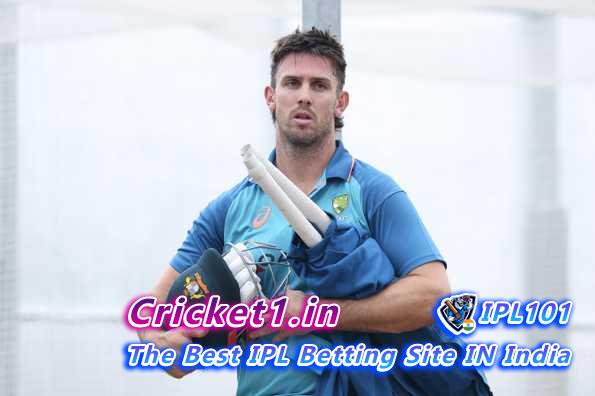
As Australia’s cricket team steels themselves for the looming T20 World Cup, their newly appointed T20I captain, Mitchell Marsh, is grappling with the challenge of a right hamstring strain. The injury, a significant interruption to his professional momentum, necessitated an early exit from the Indian Premier League and a focused rehabilitation period ahead of the World Cup. While addressing the media in Perth on a bright Thursday, Marsh exuded cautious optimism about his recovery timeline.
The 32-year-old all-rounder, known for his hard-hitting prowess and reliable medium pace, acknowledged the tightrope he’s walking on his path to recovery. With a note of candid realism, Marsh admitted, “If we had to play tomorrow, I’d be in a bit of trouble.” However, he quickly tempered concerns by suggesting that his fitness schedule aligns almost serendipitously with the World Cup timeline. “Still a couple of weeks away [from full fitness],” he mentioned, presuming no complications arise to derail his preparations. His conditioning remains paramount as he adds, “The hammy is good, it’s coming along really well. It’s pretty much exactly where we want it to be.”
In a squad announcement on Wednesday, George Bailey, the Australian team’s selection chief, highlighted the necessity of a gradual build-up to Marsh’s bowling workload. Evidently, the route to regaining full bowling capacity will be cautiously charted out, although batting practice is set to resume sooner. Bailey reassured fans and stakeholders alike, stating, “He’ll certainly be fit and firing to play.”
Australia is scheduled to initiate their World Cup endeavours against Oman in the sun-drenched climes of Barbados on June 6. The match bears additional significance as it marks the commencement of Marsh’s full-time captaincy tenure—a responsibility he’s assumed for a year on an interim basis. Taking to the helm with a mix of pride and humility, Marsh considers it a rare honour to lead his nation onto such an eminent stage. “Just really proud,” he reflected on his elevation to the captaincy role. “It’s not every day you get to captain Australia and lead them to a World Cup.”
His approach to leadership appears grounded in a collective ethos, commending the presence of multiple strong leaders within the squad. A light touch and an assurance of maintaining a convivial team atmosphere are the cornerstones of his captaincy philosophy—as vital as strategy and planning. Past experiences have informed his style, with Marsh understanding the importance of not diverting too far from what has already brought the team success.
Whilst in constant dialogue with his friend and former skipper Pat Cummins, Marsh plays down the idea of intensive cricket strategizing between them. Their interactions, framed within the context of friendship and mutual respect, look set to continue in the spirit of camaraderie. “We’re always in communication as mates and, I guess, as leaders,” said Marsh, fortifying the idea of a shared leadership dynamic within the team.
Not overlooking the team selection deliberations, Marsh also weighed in on the exclusion of Jake Fraser-McGurk, the young sensation emerging in the IPL. With words of adulation and foresight, Marsh endorsed Fraser-McGurk’s budding cricketing journey, yet affirmed the selectors’ confidence in the chosen 15-member squad. Experienced openers like Travis Head and David Warner are credited with instilling the sense of stability crucial for global tournament campaigns. As per Marsh’s testament, “We’re really comfortable that we’ve got the right 15, to hopefully take us deep into the World Cup.”
Only time will reveal the sagacity of Australia’s preparations and whether Marsh can marshal his forces to World Cup triumph. For now, his personal race to fitness commands his immediate focus as the countdown to Barbados ticks ever closer.

